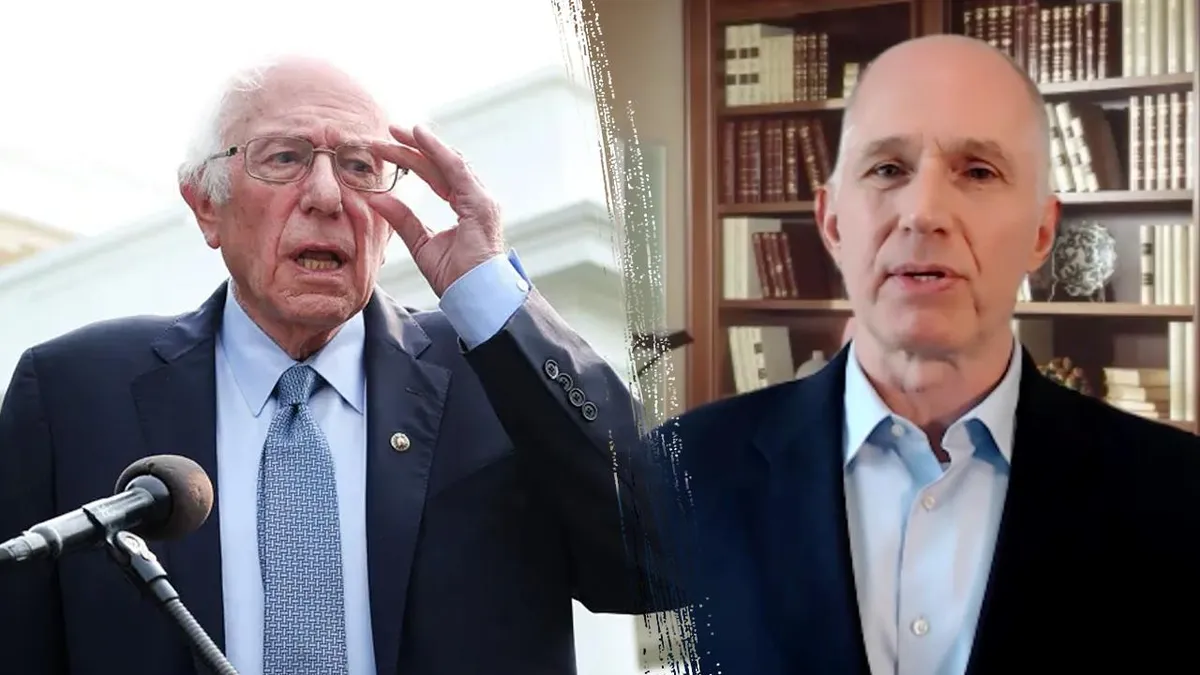
Recent discussions in Washington, D.C., surrounding President Trump's budget reconciliation package, often referred to as the "big beautiful bill," have sparked significant controversy. An expert opinion shared with Fox News Digital this week highlights how some major criticisms from Democrats might be based on incorrect facts. Jim Agresti, the president and cofounder of Just Facts, provided insights on the ongoing debate, particularly concerning claims that the bill will negatively impact Medicaid and disproportionately harm the poor.
Agresti clarified that Trump's legislation does not eliminate benefits for anyone with an income below the poverty line, individuals working at least 20 hours a week who are not caring for a child, or American citizens. Instead, critics, including some Democrats and a few Republicans, such as Senator Josh Hawley, have suggested that Trump's bill will lead to Medicaid cuts that would hurt vulnerable populations. According to Agresti, these claims are unfounded, stating, "It cuts out illegal immigrants who are not Americans and fraudsters," thereby dismissing the narrative as lacking factual basis.
The Medicaid program, which began in 1966, has seen significant expansion over the years. Agresti pointed out that while the poverty rate has remained fairly stable between 11% and 15%, the percentage of people in the U.S. enrolled in Medicaid has skyrocketed from 3% to 29%. This means that currently, there are 2.5 times more people on Medicaid than individuals living in poverty.
Democrats have voiced concerns that the proposed Medicaid reforms could lead to approximately 14 million people losing coverage. They have relied on data from recent reports by the nonpartisan Congressional Budget Office (CBO) to substantiate these claims. However, the White House and Republican leaders have disputed these figures, arguing that not all policy proposals discussed were part of the actual legislation, and thus, the projected insurance loss would be considerably lower.
Republicans maintain that their proposed reforms, which include implementing work requirements, strengthening eligibility checks, and addressing Medicaid fraud, are designed to preserve the program for those who genuinely need it. Agresti reiterated this point, emphasizing that the Medicaid cuts aim to move individuals out of poverty and reduce wasteful spending within the program.
Independent Senator Bernie Sanders has described the bill as a "death sentence for the working class," mainly because it purportedly raises health insurance copayments for low-income individuals. Agresti countered this assertion, stating, "The Big Beautiful Bill does not raise copayments on anyone who's below the poverty line." Instead, the legislation proposes that states charge some degree of copayment for those above the poverty line, reducing the maximum copayment from $100 to $35 per visit.
Agresti elaborated on the current health care system, explaining that individuals without copayment responsibilities often misuse emergency services, leading to unnecessary expenses that do not improve health outcomes. He referenced randomized control trials that reveal such misuse, stating that individuals without financial stakes in their care tend to overutilize emergency services for non-critical issues.
In response to Agresti's statements, Sanders' Communications Director Anna Bahr labeled his facts as incorrect, highlighting that nearly half of all enrollees on the Affordable Care Act (ACA) exchanges are Republicans. Bahr also pointed to the reconciliation bill as a barrier for workers who might struggle to navigate the paperwork required for Medicaid enrollment, asserting that this could hinder their access to ACA tax credits.
Agresti responded to these assertions by emphasizing that individuals in poverty do not qualify for expanded Obamacare subsidies. He argued that following the expiration of the temporary COVID-era assistance, those with incomes up to 400% of the federal poverty level would still benefit from these programs, albeit at reduced levels. His critique of the claim that copayment changes would harm working families was backed by research indicating that generalizations do not equate to causation.
Agresti also addressed the narrative suggesting that Medicaid reforms cannot be made without negatively impacting those entitled to benefits. He cited the Government Accountability Office's findings that hundreds of billions of dollars are wasted annually due to fraud and inefficiencies within the system. He asserted that establishing criteria for Medicaid eligibility is essential to curbing waste and ensuring that resources are allocated to those who genuinely need assistance.
In recent statements, Senator Hawley expressed support for certain changes to Medicaid, including stricter work requirements and measures to eliminate fraud. However, he highlighted that a significant number of individuals in Missouri rely on Medicaid due to their inability to afford private insurance. He emphasized the importance of maintaining health care access for working individuals who strive to improve their economic situations.
As discussions about the big beautiful bill continue, the debate surrounding its implications on Medicaid, health care costs, and the welfare of low-income Americans remains a critical topic in Congress.